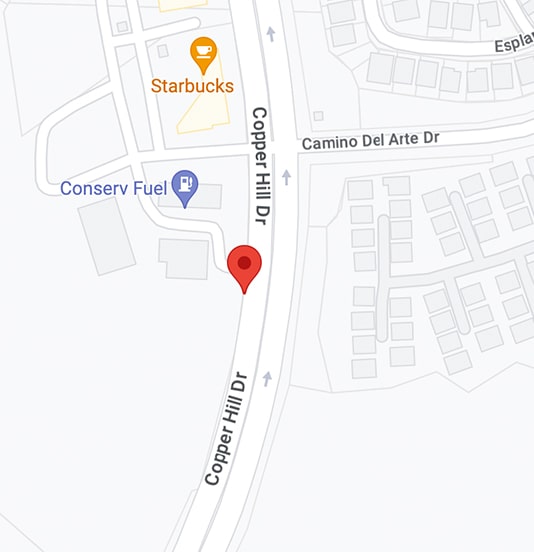Dental prophylaxis is a dental procedure that helps keep your oral health in top condition. This professional dental cleaning procedure removes plaque, tartar, and stains that regular brushing and flossing cannot remove. Regular cleanings prevent cavities, gum disease, and other dental problems. Without these treatments, you will experience tartar buildup, which comes with complications that only professional tools can resolve.
Prophylaxis, or cleaning, does more than just clean your teeth. It helps keep your gums healthy and freshens your breath. It decreases your risk of periodontal disease by a significant amount, which, if left untreated, can lead to tooth loss. Regular cleanings provide the most important benefit to patients with a history of gum disease or dental problems. Your dentist can monitor the condition of your teeth and gums on each visit, and any issues can be addressed early before they worsen.
If you are in the Santa Clarita area, visit Valencia Advanced Dentistry at Copperhill Smiles for professional dental cleaning. We provide the professional dental care and advice you need to keep your teeth strong and your gums healthy.
An Overview of Prophylaxis
Prophylaxis involves various dental services essential to maintaining and improving oral health. This process primarily focuses on carefully removing plaque and tartar. Specialized instruments used by dentists and hygienists help to thoroughly remove plaque, a soft, sticky film of bacteria, and tartar, the hard deposit that forms on your teeth. They explicitly target areas sometimes overlooked when brushing, like along the gum line and between teeth. If not treated, these accumulations can lead to serious dental problems like gum disease, infection, and cavities.
After the cleaning, your teeth will be polished. This procedure removes surface stains and smooths the enamel, making it less friendly to bacteria that can form plaque. Polishing makes your smile shine brighter, cleaner, and fresher, with fresher breath and better oral health.
Prophylaxis also includes fluoride treatment. Fluoride is a chemical element dentists apply directly to teeth to strengthen enamel, making it more resistant to decay and acid attacks from bacteria. People at higher risk for cavities benefit significantly from this treatment, which offers extra protection against dental caries.
Your dentist may also recommend dental sealants as part of your preventive care. Sealants are not included in every prophylaxis appointment but are an essential form of protection for your molars and premolars. These thin, protective coatings cover the chewing surfaces of your back teeth and help seal off grooves and pits where food particles and bacteria can gather, causing cavities.
You should also expect a comprehensive oral examination during your prophylaxis appointment. While undergoing this thorough examination, your dentist examines your teeth, gums, and entire oral cavity for any indications of possible problems, including cavities, gum disease, or oral cancer. Detecting these issues early will prevent them from becoming worse health concerns. Your dentist will take care of targeted cleaning and will give you tailored advice to stop further progress if any signs of gum inflammation or early-stage gum disease (gingivitis) occur.
Dental Prophylaxis for Children
Prophylaxis can significantly benefit your child, and the best dentists to treat your child specialize in pediatric care. These professionals know what the child needs and treat them with tailored services meant to be orally healthy and emotionally comfortable for your child.
Pediatric dentists make your child’s dental visits as comfortable as possible by creating welcoming environments where your child will feel less anxious. Often, they use child-friendly techniques and equipment, making what could otherwise be a stressful experience a positive one. When your child enters the office, they come face to face with a happy office filled with bright colors and staff trained to connect with young patients.
Not only do pediatric dentists provide essential preventive services, but they also emphasize education. They teach your child how to brush and floss properly. The earlier these habits are instilled, the more power they give children to take responsibility for their oral health and make good dental care a lifelong habit.
Pediatric dentists can also detect teeth problems before they become a problem. They can keep track of your child’s dental development and act early to prevent issues like cavities or misaligned teeth.
How Often Should I Go For Dental Prophylaxis?
The frequency of dental prophylaxis is a crucial discussion among patients and dental professionals. People often wonder whether they should go in for cleanings every six months or once a year. According to the American Dental Association (ADA), the interval for a dental checkup depends on your oral health needs, risk factors, and hygiene practices. Your dentist should decide the best interval for you.
Research supports the benefits of routine dental cleanings, which are crucial in determining how often you should have them. For example, the Cochrane Collaboration review showed that people who get regular scaling and polishing have slightly less tartar buildup and plaque than those who do not. Cleanings like these not only make teeth look better, but they can also help prevent gum disease and cavities to keep you healthy.
Routine dental scaling is generally safe. However, some risks are worth mentioning. The most worrisome is bacteremia, where bacteria enter the bloodstream. This is rare, but it can be serious, especially in those with certain medical conditions, such as:
- Those who have had joint replacements.
- Individuals whose immune systems are weakened.
Even minor dental procedures can increase the risk of complications in these instances.
Several dentists advocate antibiotic prophylaxis as a preventive measure to address these risks. This includes administering antibiotics before a dental cleaning or restorative procedure for patients at greater risk of infection. It can help protect from bacteremia complications and emphasize the merit of proactive, good oral health.
The Cost of Dental Prophylaxis
Cost becomes a key consideration when deciding how often to see a dentist. Consider your out-of-pocket expenses versus what your dental insurance plan covers. A good insurance policy can help you pay for more frequent visits.
The experience and qualifications of your dentist also determine the cost of the procedures. The highly trained or experienced dentist will charge higher rates simply because he/she is highly trained or experienced. Your dentist's expertise can be the reason to justify the sums you pay for your oral health.
The final charge is also affected by your location. Operating dental practices in urban centers or upscale neighborhoods tend to have higher operational expenses and must pass those costs onto patients. On the flip side, if you live in a less crowded area, you may be able to find quality care at a lower price than what you currently pay.
Furthermore, the amount of cleaning needed can affect your final bill. If you have a lot of plaque buildup or other oral health problems, your appointment might take longer and cost more.
However, according to the American Dental Association, patients without insurance can expect to pay between $75 and $200 for a dental cleaning. The costs for people with insurance coverage are usually between $20 and $100, depending on deductibles and co-pays.
What is Gross Debridement?
Gross debridement is a major procedure. It is necessary when standard dental cleaning cannot remove significant plaque and tartar buildup. Dentists recommend this procedure to patients who have not had dental care for a long time and have calcified deposits that are so severe as to prevent proper examination. Gross debridement removes these hardened materials, allowing the dentist to assess more accurately and provide appropriate follow-up care.
Gross debridement reduces inflammation and decreases the probability of periodontal disease when early signs of gum disease, like gingivitis, appear. It also helps create a healthier environment in your mouth, making future treatments more effective. This is often the first step before more in-depth work, like scaling and root planing, which aim to treat more profound problems with the gums and teeth.
Further, undergoing gross debridement ensures that routine dental prophylaxis will be more effective. A regular cleaning can better maintain oral health without obstructive plaque and tartar. Dentists rely on this procedure to clear the way for preventive and corrective treatments, keeping you from more serious dental complications.
Types of Dental Prophylaxis
There are different categories of dental prophylaxis. All serve different purposes. After conducting an oral exam, your dentist could recommend any of the following types of dental prophylaxis:
Primary Prophylaxis
Primary dental prophylaxis is a routine procedure that prevents dental diseases from developing. When you start a primary dental prophylaxis appointment, your dentist or one of his/her hygienists will review your entire mouth for clues of tooth decay, gum disease, and other things that might be wrong.
They usually start by removing your plaque and tartar buildup from your teeth using specialized instruments. If not removed, this plaque can cause decay and gum disease. Hardened plaque (tartar) can only be removed by professional cleaning. The hygienist then polishes your teeth with gritty toothpaste. This removes any remaining surface stains and leaves your teeth smooth and fresh.
Your dentist could also administer fluoride treatments during the visit to strengthen your enamel and provide additional protection against tooth decay.
Secondary Prophylaxis
Secondary prophylaxis is crucial in controlling pre-existing health problems and preventing their recurrence. It helps people who have already had a health problem to lower the risk of complications or relapse. Patients with a history of periodontal disease and cavities are most susceptible to secondary prophylaxis in dental care.
Depending on your health needs, your dentist will probably suggest specific, tailored preventive measures during your dental appointments. For example, if you have had gum disease, your dentist could recommend more frequent cleanings and a very aggressive oral hygiene program to maintain gum health and prevent further breakdown. Further, people who have undergone some dental procedures could also require constant checkups and care to avoid complications.
The benefits of secondary prophylaxis extend beyond dental health. For example, if you have a history of heart disease, your healthcare provider could prescribe medications like statins to reduce cholesterol and prevent future cardiac events. Patients with respiratory issues also benefit from regular checkups and targeted treatments to keep their conditions under control.
Tertiary Prophylaxis
Tertiary prophylaxis is tailored to help patients with chronic dental conditions or complications from previous treatment. This procedure focuses on minimizing the impact of established diseases. If you have a history of severe gum disease, your dentist could recommend continuing with periodontal maintenance therapy. The treatment for this includes more frequent cleanings and particular interventions to control the inflammation and infection to prevent further deterioration of your gum health.
Tertiary prophylaxis is crucial after dental surgeries, such as extractions or implant placements. It helps ensure proper healing and reduce the chance of infection. Your dentist will probably schedule follow-up visits to ensure you recover properly and treat you if necessary.
If you have dental caries, tertiary prophylaxis becomes equally important. If you often get cavities, your dentist will provide you with ways to manage them. This could mean getting fluoride treatments, using dental sealants, or changing your diet to protect as much of your remaining tooth structure as possible and keep new cavities from forming.
Moreover, extensive restorative work like crowns or bridges necessitates firm reliance on tertiary prophylaxis to assure the longevity of these restorations. Regular checkups become necessary for assessing the integrity of your dental work and dealing with any problems that may occur over time.
Quaternary Prophylaxis
In some instances, your dentist could suggest quaternary prophylaxis. This prophylaxis avoids unnecessary medical interventions that may not significantly improve your health. If you have a stable chronic dental problem, your dentist could suggest aggressive treatments that can create problems or side effects. They could instead recommend you use conservative management strategies. For elderly patients with complex medical histories or for patients who are undertreated, this approach can help prevent overtreatment.
Quaternary prophylaxis also plays a crucial role in managing dental procedures. If a particular treatment option is more harmful than helpful, your dentist could recommend alternative solutions that minimize its associated risks. This careful consideration also ensures you only undergo procedures that will work for your situation.
What You Can Expect Before and After Dental Prophylaxis Procedures
Before you go in for a dental prophylaxis procedure, you can expect several of the critical steps that will help you have a successful cleaning. Your dentist will review your medical history to see if he/she can identify any underlying health conditions or medications that could impact the procedure. They will know whether you have had recent illnesses, allergies, or treatments and will tailor the prophylaxis to your needs.
When you are in the dental chair, the dentist will perform a complete oral examination. This examination measures your gum health, how your teeth and gums are aligned, and how much plaque or tartar has been built up. X-rays help your doctor better understand your dental condition and identify problems that may need follow-up.
When you undergo prophylaxis, a trained dental hygienist will clean your teeth. They use specialized instruments to remove plaque and tartar from your teeth very carefully. These include scalers and ultrasonic devices.
After the procedure, you should feel your teeth are smoother and fresher. Those with existing dental problems could experience mild sensitivity, which is usually only temporary but should subside within a few hours. Your dentist will give you personalized post-care instructions and tell you how important it is to maintain good oral hygiene at home. If you have sensitive or weakened enamel and your dentist does not see any more issues, they could recommend changing your brushing and flossing techniques and using mouthwash or fluoride treatments to strengthen it again.
Moreover, your dentist could schedule follow-up appointments according to your dental health. Regular check-ups and cleanings will help prevent future dental issues, allowing for ongoing monitoring of your oral health.
Find a Professional Teeth Cleaning Dentist Near Me
Maintaining good oral health requires at-home cleaning and dental prophylaxis. Regular cleanings help protect your teeth and gums from cavities and gum disease, so you can actively protect them by attending routine cleanings. Not only does this preventive measure improve the appearance of your smile, it also plays a big part in your overall well-being. As you align this intensely critical practice with your priorities, remember that every appointment at the dentist is more than just a scheduled date. It is an investment you make in your health and confidence.
Now is the perfect time to schedule your next dental prophylaxis if you have not done so already. Talk to your dentist to find out your particular oral health needs and what routine works best for you. Remember that regular checkups and cleanings are easy ways to receive long-lasting benefits. It is time to take charge of your dental health today and learn how much professional cleanings can do for you. Do not hesitate to contact Valencia Advanced Dentistry at Copperhill Smiles now to book an appointment and commit to getting a brighter, healthier smile. Call our Santa Clarita team at 661-775-7717 for further assistance.




